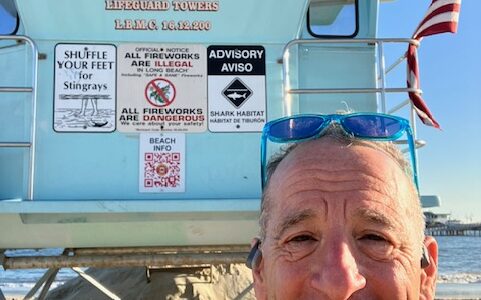
Drones For Defense
A recent article on lifeguards using drones to protect swimmers against sharks reminded Herndon Lawyer Doug Landau of the fact that insurance companies use drones for surveillance in injury cases.

Drones make it easier for private investigators hired by insurance companies and defense law firms to “spy” on injured victims and Worker’s Compensation claimants. Private investigators no longer have to follow injured workers to catch them engaging in activities that are not consistent with their disabilities when they: go to pick up their medications, attend doctor’s appointments, or travel away from their homes on other errands. They now can send up a drone to see: over fences, into backyards, and other inaccessible areas that were previously impervious to the “prying eyes” of insurance company agents.
In a case that was tried before the advent of drones, Doug Landau’s client had sustained a significant lower back injury that required surgery. He was out on Temporary Total Disability (TTD), getting full compensation checks for 2/3 of his average weekly pre-injury wage under an Award Order.
He claimed continuing disability while attending physical therapy. The insurance company sent out private investigators, and based on their findings, the injured worker was cut off, even though he had not been released to work by his authorized treating doctor. When the case went to court, the insurance company’s defense lawyer presented a video of the injured worker painting his apartment. He was seen bending, twisting, and reaching with the paintbrush.
The claimant lived on the third story of a Reston apartment building!
How did the insurance company agents get this footage without drones?
The private investigator had followed the claimant to a hardware store, where the claimant had bought several cans of interior paint. Then, when the claimant went home with the paint, the investigator used a telescoping pole to bring his camera up to the level of the open windows in the injured worker’s apartment. That’s how he was able to film the painting process. When the injured worker complained that this was an “invasion of privacy, “ the judge countered that it was “open to the public” and that he should’ve gotten some better window treatment! So, even things that happen inside the home, may be visible outside. This is “fair game” in a court of law.
The lesson learned; There is no right to privacy after a personal injury or pending Worker’s Compensation claim.
Abrams Landau clients are routinely surprised by the fact that the insurance companies and their agents will have an enormous amount of personal information about them at the very beginning of the case. The insurance company will get access to all medical records, not just those for treatment for the injury sustained. In cases where they may have to pay significant money, they will employ investigators, doctors, medical bill review companies, and other agents. They do this in order to challenge the claimed losses, delay their “day in court,” defeat the injured victim, and/or bring charges of insurance fraud against the Plaintiff.
We want those who have been injured by the defendant’s unsafe conduct to understand the actions of insurance companies, so they are not caught off guard. There are strict legal deadlines, so getting experienced legal counsel is vital. If you or someone you know, has been injured in a car crash, dangerous facility, and on the job, or have questions about how best to protect your rights, please contact us at 703–796–9055 or email frontdesk@landaulawshop.com.
